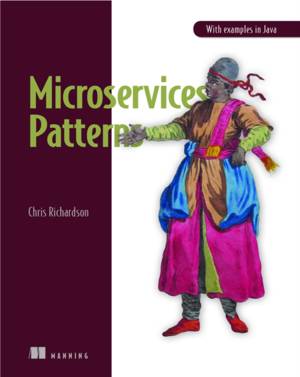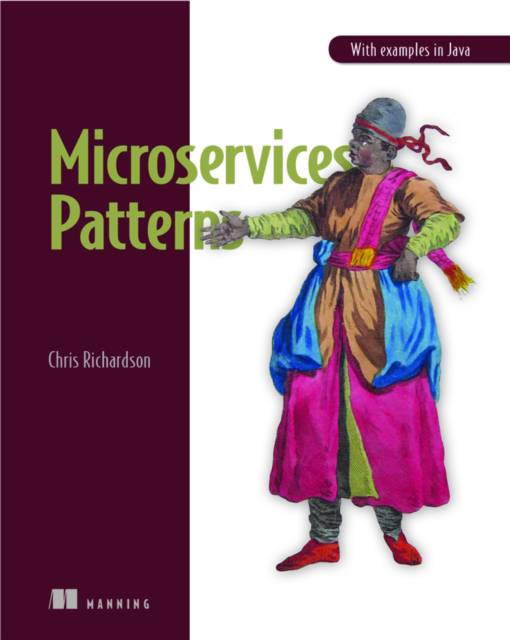
- Retrait gratuit dans votre magasin Club
- 7.000.000 titres dans notre catalogue
- Payer en toute sécurité
- Toujours un magasin près de chez vous
- Retrait gratuit dans votre magasin Club
- 7.000.000 titres dans notre catalogue
- Payer en toute sécurité
- Toujours un magasin près de chez vous
35,99 €
+ 71 points
Format
Description
44 reusable patterns to develop and deploy reliable production-quality microservices-based applications, with worked examples in Java Key Features
Purchase of the print book includes a free eBook in PDF, Kindle, and ePub formats from Manning Publications. About The Book Microservices Patterns teaches you 44 reusable patterns to reliably develop and deploy production-quality microservices-based applications. This invaluable set of design patterns builds on decades of distributed system experience, adding new patterns for composing services into systems that scale and perform under real-world conditions. More than just a patterns catalog, this practical guide with worked examples offers industry-tested advice to help you design, implement, test, and deploy your microservices-based application. What You Will Learn
This Book Is Written For
Written for enterprise developers familiar with standard enterprise application architecture. Examples are in Java. About The Author
Chris Richardson is a Java Champion, a JavaOne rock star, author of Manning's POJOs in Action, and creator of the original CloudFoundry.com. Table of Contents
- 44 design patterns for building and deploying microservices applications Drawing on decades of unique experience from author and microservice architecture pioneer Chris Richardson A pragmatic approach to the benefits and the drawbacks of microservices architecture Solve service decomposition, transaction management, and inter-service communication
Purchase of the print book includes a free eBook in PDF, Kindle, and ePub formats from Manning Publications. About The Book Microservices Patterns teaches you 44 reusable patterns to reliably develop and deploy production-quality microservices-based applications. This invaluable set of design patterns builds on decades of distributed system experience, adding new patterns for composing services into systems that scale and perform under real-world conditions. More than just a patterns catalog, this practical guide with worked examples offers industry-tested advice to help you design, implement, test, and deploy your microservices-based application. What You Will Learn
- How (and why!) to use microservices architecture Service decomposition strategies Transaction management and querying patterns Effective testing strategies Deployment patterns
This Book Is Written For
Written for enterprise developers familiar with standard enterprise application architecture. Examples are in Java. About The Author
Chris Richardson is a Java Champion, a JavaOne rock star, author of Manning's POJOs in Action, and creator of the original CloudFoundry.com. Table of Contents
- Escaping monolithic hell
- Decomposition strategies
- Interprocess communication in a microservice architecture
- Managing transactions with sagas
- Designing business logic in a microservice architecture
- Developing business logic with event sourcing
- Implementing queries in a microservice architecture
- External API patterns
- Testing microservices: part 1
- Testing microservices: part 2
- Developing production-ready services
- Deploying microservices
- Refactoring to microservices
Spécifications
Parties prenantes
- Auteur(s) :
- Editeur:
Contenu
- Nombre de pages :
- 520
- Langue:
- Anglais
Caractéristiques
- EAN:
- 9781617294549
- Date de parution :
- 19-11-18
- Format:
- Livre broché
- Format numérique:
- Trade paperback (VS)
- Dimensions :
- 190 mm x 231 mm
- Poids :
- 870 g







